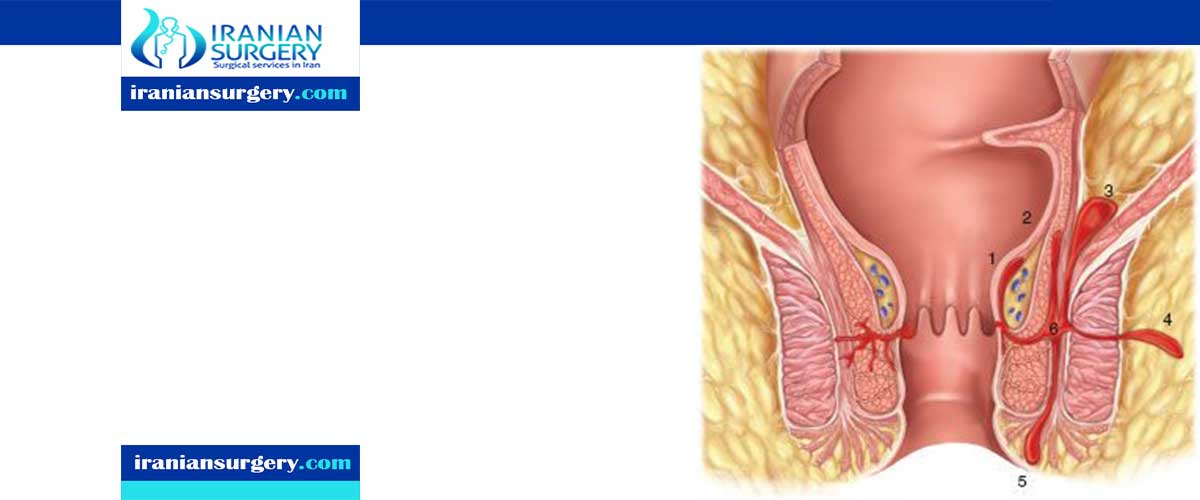Rectal abscess cause

What causes rectal abscess?
Can a perianal abscess heal on its own?
How do you get rid of a perianal abscess?
What happens if perianal abscess bursts?
What causes rectal abscess?
A blocked anal gland, a sexually transmitted infection (STI), or an infected anal fissure can cause anal abscesses. Some other risk factors include:
- Colitis
- Inflammatory bowel disease such as Crohn's disease or ulcerative colitis
- Diabetes
- Diverticulitis
- Pelvic inflammatory disease
- Being the receptive partner in anal sex
- Use of medications such as prednisone
Read more about: Can you pop a perianal abscess?
Read more about: Anal abscess treatment
Symptoms of anal abscesses
Superficial anal abscesses are often associated with:
- Pain, which is usually constant, throbbing, and worse when sitting down
- Skin irritation around the anus, including swelling, redness, and tenderness
- Discharge of pus
- Constipation or pain associated with bowel movements
Deeper anal abscesses may also be associated with:
- Fever
- Chills
- Malaise
Sometimes, fever is the only symptom of deep anal abscesses.
Read more about: Rectal bleeding
Read more about: rectal cancer symptoms
Anal abscess
An anal abscess is a painful condition in which a collection of pus develops near the anus. Most anal abscesses are a result of infection from small anal glands. The most common type of abscess is a perianal abscess. This often appears as a painful boil-like swelling near the anus.
Read more about: Rectal Prolapse
Read more about: rectal cancer causes
Can a perianal abscess heal on its own?
Fortunately, superficial fissures usually heal quickly with medical treatment, and most symptoms disappear within a few days to a couple of weeks. Many naturally start to drain and heal, but some may need treatment with frequent baths and antibiotics. Others may need to be treated with a small operation. Some perianal abscesses may not heal completely, with or without surgery. This can cause a tiny opening to develop where the abscess had been draining.
How do you get rid of a perianal abscess?
Anorectal abscesses rarely go away on their own or resolve solely with antibiotic therapy. In most cases, the doctor would need to drain the abscess, a relatively simple in-office procedure that involves a local numbing agent, a scalpel, and a pair of forceps.
If the abscess is especially deep or situated high in the rectum, the procedure needs to be performed in a hospital under general anesthesia. The surgery generally takes around 30 minutes. Some of the extracted pus may be sent to the lab to identify the causal bacterium.
Once the procedure is done, antibiotics are prescribed for around a week to help treat the infection and prevent any further spread. You may also be advised to use a sitz bath, a shallow basin used to soak and clean the anal area.
Tylenol (acetaminophen) is sometimes prescribed to help relieve the pain. During recovery, stool softeners may be needed to reduce abrasion and allow the drained abscess to better heal.
After a bowel movement, dab softly with toilet paper and rinse with a squirt bottle filled with warm water. Wash lightly with soap but avoid alcohol or hydrogen peroxide, which can slow healing. If needed, pad the wound with gauze or a maxi pad.
You can also ask your doctor about the short-term use of over-the-counter topical creams and gels, which may help soothe anal tissues.
The drainage of an abscess will provide almost immediate relief. While there may some pain after the procedure, it will usually be mild by comparison. However, if you experience excessive rectal bleeding, fever, chills, or vomiting after returning home from the procedure, call your doctor immediately.
Read more about: Rectal Cancer Staging
Read more about: rectal cancer stage 3
What happens if perianal abscess bursts?
If an abscess is not drained, it may continue to become larger and fill with pus until it bursts, which can be very painful. If an abscess is allowed to burst and drain of pus on its own, there is also a risk that it will not drain properly, causing the abscess to come back or the infection to spread.
Read more about: rectal abscess antibiotics
Read more about: What is a fistula and what causes it?

